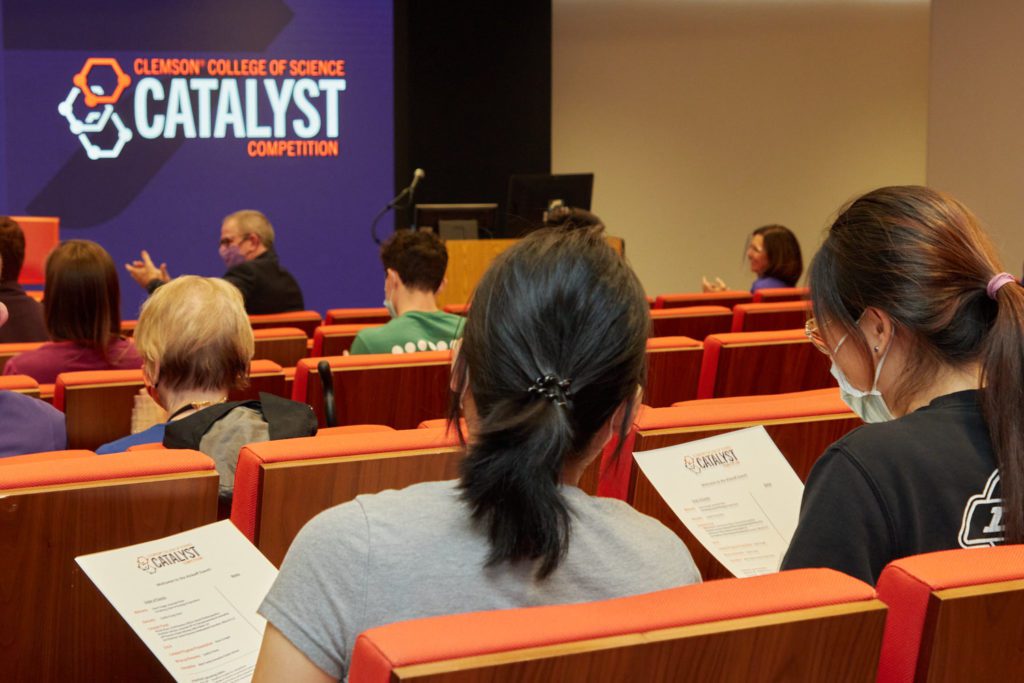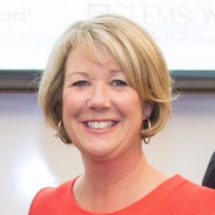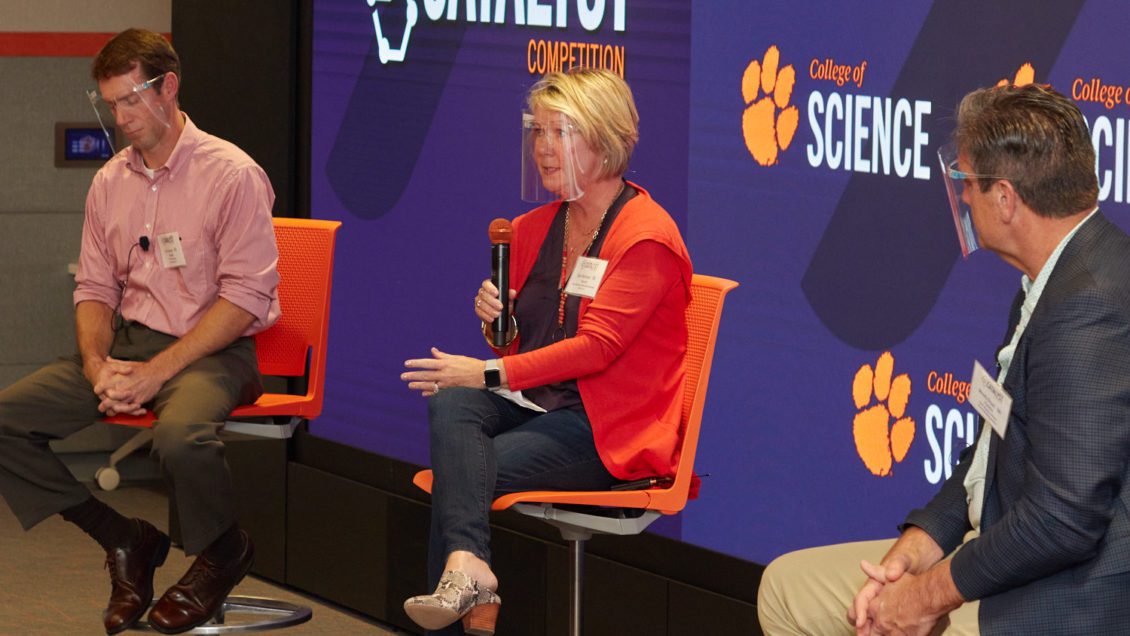College of Science students are innovators and problem-solvers. They’ll show off those skills in the Catalyst Competition, a new two-semester entrepreneurship challenge that culminates with a pitch contest and monetary prizes.
“The Catalyst Competition will provide SCIENCE students with great exposure to the world of entrepreneurship, from genesis to development to marketing of ideas,” said Steve Creager, associate dean of the College of Science. “I am excited to see our students’ ideas and their educational growth as they learn how ideas transition into products.”

Teams selected for the Catalyst Competition will receive up to $500 in seed money to develop their concepts and prototypes. Projects must relate in some way to a College of Science major. Each team will have three to five students and at least half of the students must be in a College of Science undergraduate major. Graduate students are eligible to participate as part of a team.
As part of the program, teams receive mentorship and support from working professionals and campus innovation and entrepreneurship program representatives. Teams will have three to five students
Teams will be announced Dec. 6.
Following idea development, student teams will pitch their innovations to a panel of judges in March 2022 for a chance to win up to $2,500 in cash prizes.

The Catalyst Competition kicked off Oct. 29 in the Watt Innovation Center with a panel of successful entrepreneurs and SCIENCE alumni discussing their experiences and what it takes to create and launch a successful product.

“When you’re thinking about starting a company or developing a product, it’s important that you understand the value of what you’re bringing to the market,” said Susi Robinson, senior business development executive at Nikia Dx LLC in Charlotte, North Carolina. She volunteers with Innovate Charlotte, serving as a mentor and adviser to entrepreneurs in a startup ecosystem.
Too many startups try to do too much at one time, she said.
“My advice is to focus on one core product or service,” said Robinson, who is a Clemson graduate with a degree in mathematical science. “Make sure you can clearly articulate what you have, why it’s important and why somebody should give up some of their money to pay for your product or service.”

Differentiating yourself in the market is critical, said Woody Bryan, the chief business officer at Revolo Biotherapeutics, an emerging global leader in immune-resetting therapies. Bryan serves on the advisory board of the Arthur M. Spiro Institute for Entrepreneurial Leadership.
“The business I work in is all about safety and efficacy. We certainly are in tune with where the deficiencies of existing therapies are and how we think what we’re bringing to the table could be better,” Bryan said.
But what you may think the differentiator is could differ from what the end user thinks it is, he said.
“Your idea about why your product is better is just your idea. You better pressure test it with a tough audience because everyone else will look at it quite differently,” Bryan said.

Robinson added, “You don’t want just to vet your product or service idea with your family and friends because they’re all going to tell you it’s a great idea. You want somebody to challenge you and make you prove to them it actually is a great idea.”
Jeff Pearson, a patent attorney at Mei & Mark LLP and sponsor of the Catalyst Competition, said assembling the right team is essential. He said diversity in skill sets and approaches are essential.

“The idea is powerful in itself, but then you need to think about what resources do I need to make this idea happen,” he said.
He said confidentiality is important.
“It’s the first person who gets to the patent office. It wasn’t always that way,” he said.
Shontavia Johnson, associate vice president for entrepreneurship and innovation in the provost’s office at Clemson, told students to take advantage of all the entrepreneurial and mentorship programs available.
“There are people out there that will help you,” she said.
Get in touch and we will connect you with the author or another expert.
Or email us at news@clemson.edu

